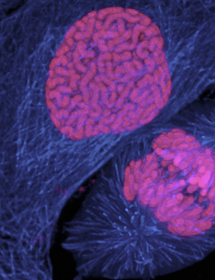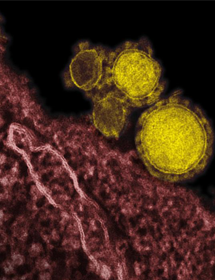
Reliable in vitro diagnostics guide effective treatments
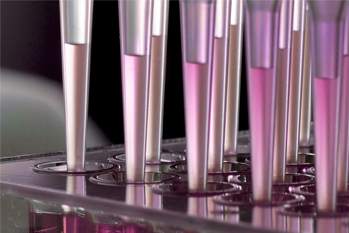 In vitro diagnostics (IVDs) are assays that are used to perform tests on clinical samples taken from the body, such as blood, urine, or tissue. The primary goal of these assays is to screen for disease, diagnose a medical condition, monitor therapy usage, or prevent disease. Because approximately 70% of medical decisions are made on the basis of information provided by IVDs, they have become a critical component of patient care.
In vitro diagnostics (IVDs) are assays that are used to perform tests on clinical samples taken from the body, such as blood, urine, or tissue. The primary goal of these assays is to screen for disease, diagnose a medical condition, monitor therapy usage, or prevent disease. Because approximately 70% of medical decisions are made on the basis of information provided by IVDs, they have become a critical component of patient care.
In recent years, the value of IVDs has gained further recognition because of their potential to save lives through earlier diagnosis of medical conditions. In the case of an infectious disease, early detection can ensure that patients receive timely care to help slow or stop the progression of disease. Further, knowledge of infection can help promote self-isolation to prevent further spread of the disease to the community. This has been particularly important in containing the spread of highly infectious agents during an active outbreak.
Using IVDs to predict underlying genetic conditions in addition to diagnostic screening can also prevent unnecessary suffering by a patient as well as reduce the scale of treatment required. For example, IVDs designed to identify genetic abnormalities can help identify markers predisposing individuals for developing certain cancers. With this knowledge, patients can undergo regular screening to ensure that the cancer is detected at an early stage, thus improving their overall outcome.
As the ease-of-use and reliability of IVDs has improved, some IVDs have moved out of the laboratory setting and into the patient’s home. Consumers can now perform simple tests to monitor blood glucose levels, identify urinary tract infections, track ovulation, and confirm pregnancy. These tests not only empower individuals to take charge of their own health but can provide quick results that help guide further medical actions.
Products for in vitro diagnostics
Cancer research
Surviving cancer relies on an early, accurate diagnosis of the disease combined with effective treatment. That's why ATCC provides the cell models and nucleic acids needed to develop and validate diagnostic assays.
Infectious disease research
To develop the diagnostic tools needed to quickly and accurately identify pathogens, researchers need access to highly characterized reference materials. Discover how ATCC’s portfolio of authenticated microorganisms can help.
Because the results of IVDs provide the basis of medical decisions that affect patient health, it is essential that the assay is as accurate as possible. However, ensuring the sensitivity and specificity of an assay is not straightforward as the results can be influenced by a number of factors such as instrument calibration, reagent quality, or protocol reliability. Therefore, to ensure the reproducibility, accuracy, and comparability of an IVD, it must be standardized using authenticated and highly characterized reference materials.
At ATCC, we are committed to supporting researchers working toward the development and validation of IVDs. That’s why we provide a variety of certified reference materials, clinically relevant pathogens, advanced cell models, and molecular standards needed to support every stage of the assay development process. Together, we can build the tools needed to improve global health.
Credible tools for diagnostics research
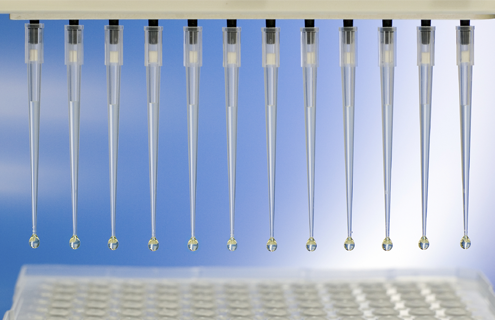
Synthetic nucleic acids – Tools for diagnostics development
Rapid and accurate diagnostic tools are essential for controlling the spread of viral diseases. However, building these assays can be challenging as many viruses can be difficult to culture or may require high-containment facilities. Read our white paper to explore how synthetic nucleic acids provide a solution.
Read the white paper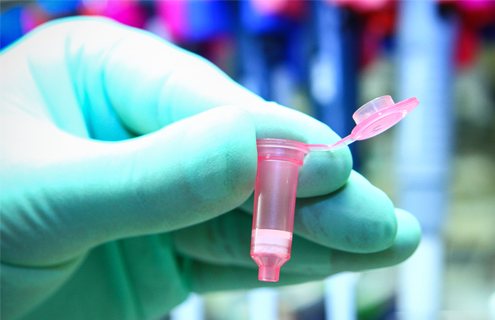
Challenges and solutions in assay development
While molecular-based assays have exhibited numerous benefits over culture-based approaches, they can be challenging to develop and validate. Read our white paper to explore the common problems faced in assay development and how standards can help.
See the Whitepaper
